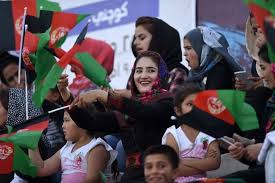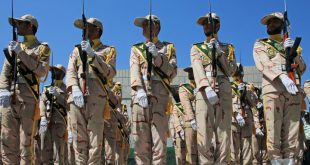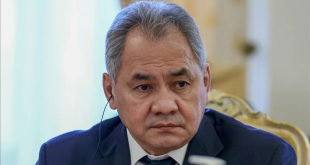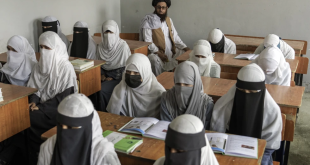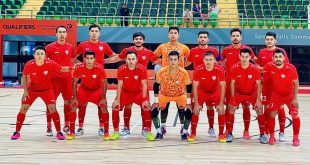Dr. Rajkumar Singh
The US interest in the region South Asia began explicitly in the initial years of cold war. At the time its global rivalry was with the former USSR and the two superpowers had their areas of influence clearly divided in world politics. They both were vitally conscious towards their global strategy and acted upon them strictly. In their global competition the Soviet intervention in Afghanistan in December 1979 and creation of anti–Soviet forces by the US with help of Pakistan and other western powers brought the ugly face of terrorism in today’s Afghanistan. After Soviets’ withdrawal from Afghanistan the leader of Al–Qaeda, Osama bin Laden became anti–America and West. In post–9/11 the US launched a global war against terrorism but particularly in Afghanistan and near Af–Pak borders where the outfit cadres and its leaders had taken refuge.
US-Pak alignment
Following the World War II the Pakistani rulers took full advantage of a sort of McCarthyism in the US foreign policy and strengthened Pakistan’s security alignment with the US through SEATO, CENTO and other arrangements. Earlier in 1947 George Keenan wrote an article, ‘The sources of Soviet conduct’ in which he prescribed for containing and then destroying democratic despotism through implacable opposition to its continuance. The brilliance of George Keenan lay in his prescient understanding of the fact that the excesses of police apparatus had fanned the potential opposition to the regime into something for greater and more dangerous than it could have been before those excesses began. Since the US could not expect in the foreseeable future to enjoy political intimacy with the Soviet regime, Keenan argued, it must continue to regard the Soviet Union as a rival in the political arena and adopt a policy of firm containment, designed to confront the Russians with unalterable counter force at every point. Consequently at various stages of the cold war, as theorised by George Keenan, the US sometimes by assisting despots presiding over failed states countered Soviet moves taking a long term, patient but firm and vigilant policy to contain Russia’s expansive tendencies.
The united States of America in pursuance of the policy of containment of the Soviet expansionism, created NATO in Europe, got involved in Vietnam War and promoted military dictatorships in Latin America, Africa and Asia including several military governments in Pakistan. As states do not dissolve by themselves many despotic rulers continued to exercise control over captive population often supported and assisted by the erstwhile super powers due to the logic dictated by the Cold War.1 The German philosopher and social theorist Jurgen Habermas had also observed that if the political community is fragmented into opposed religious, ethnic, racial, and ideological groups, more familiarly known as identity polities, then democratic structure is threatened. Meanwhile ‘source of threat to global stability has moved from nuclear war to regional rogue states to transnational or non–state actors. Effectively American definition of the threat has de-escalated from ‘evil empire’ to ‘axis of evil’ to ‘evil actors’.The international community therefore, demands that democracy should be not only an international norm but a domestic norm as well. If a state were to disenfranchise entire or part of its population then democratic states may justify foreign intervention to enfranchise the people of the non–democratic states; they may intervene to install a democratic government through internationally supervised elections. In early years with a view to policy of containing communism, it placed higher priorities on West Asia, where a Soviet military threat to Iran and Turkey was perceived, and to Southeast Asia where the Chinese were suspected of long–term expansionist ambitions. In the process the West while insisting that democracy be practised in their own countries willed to accept some of the developing countries as ‘Antarctica of democratic values, where liberal values were kept frozen for getting short–term security benefits by the dictators.
Negative role of US in Pakistan
In the case of Pakistan finding religion as insufficient basis for nationhood the Generals in collusion with the landed aristocracy and economic elite achieved dominance in ‘a nation without clear definition or cohesion’. Stephen Cohen, perhaps the greatest expert the US has on South Asian Affairs, called this compact, ‘moderate oligarchy… an informal system that tied together senior ranks of the military, the civil service, the key members of the judiciary and other elites.’Cohen held various US administrations responsible for the ascendancy of the army in Pakistan and encouraging Pakistan’s nuclear ambition. Analysing the state of sectarianism in Pakistan Brussels based International Crisis Group remarked that sectarian conflict in Pakistan was the direct consequence of state policies of Islamisation and marginalisation of secular democratic forces. Cooperation and patronage of religious parties by successive military governments have brought Pakistan to a point where religious extremism threatens to erode the foundation of the state and society. The choice that Pakistan faces, the crisis group warns, is not between genuine democracy and a military mullah that is responsible for producing and sustaining religious extremism.
Especially Zia-ul-Haq used Islam as a legitimisation strategy for the consolidation of his autocratic military rule in an unprecedented manner and therefore cultivated and strengthened Islamist elements most vigorously.Zia’s laws and policies resulted in making vast sections of the population extremely vulnerable to the Islamic militancy by replacing a tolerant and liberal civil society with an intolerant and retrogressive one. He did not employ Islam with the intention of inculcating positive values, such as peace, and honesty, imbibed by Islam. His uses of religion was limited to aggregating power with an authoritarian state, through the police, army, and bureaucracy; exercising arbitrary control; and the denial of human rights to the Pakistani citizenry. A survey of laws and policies instituted by Zia reveals that Islam was invariably employed where rights were to be curtailed and not for the expansion thereof. As a result of the policies pursued by Zia Pakistani generation has been brought up with hatred in their hearts for Jews, India and the West, notably America. In the forefront are the Pakistan Army and its Inter Services Intelligence (ISI) offshoot. No informed person can entertain any doubt about the Pak military’s abiding commitment in concert with Saudi Arabia to spread the Wahabi brand of Islam in Afghanistan, the Indian subcontinent, Central Asia and elsewhere. In other words Zia misused religion to prolong his despotic rule. Political workers were awarded harsher punishments including lashes for speaking against the government.
Thus, at the height of Islamic fundamentalism in Pakistan, the Soviet intervention in Afghanistan took place at the close of seventies (December 1979). Zia’s significant objective of Islamisation was concurrent with the Soviet military intervention in Afghanistan and the event was depicted as ‘Islam in danger’. Further it converged the interest of the US and Pakistan as the former wanted to wage proxy war with Soviet Union via Pakistan. According to Eqbal Ahmed during the 1980s, there was trend towards the growth of fundamentalists neo–totalitarian Muslim movements which is contrary to the political culture and historical traditions of the Muslim majority.The fundamentalists such as Muslim Brotherhood in the Arab world, the Jamaat-i-Islami in Pakistan, the Sharekat Islam in Indonesia, and the Islamic government of post-revolution Iran seek to restore the past in its idealised form. But none of these movements succeeded in attracting the majority of workers, peasants and intelligentsia.In sum, as a result of Zia’s cynical exploitation of Islam, the Islamists appetite grew. It opened the floodgate for religious schools, mosques, and mullah inspired criminal gangs which enjoy official protection and are often used to settle political scores.
US trapped both Pak and Afghanistan
At the juncture, more ominous was the role of the United States of America who compounded the Soviet intervention of Afghanistan. It used Islamic fundamentalism to counter Soviet communism. To fight Soviet–style atheism, US policy–makers did not hesitate to use religion for political ends–the Catholic Church in Central America and Islam in Afghanistan. In other words, Islam was employed to unite the Muslim world and spur the spirit of Jihad against the Soviet intervention in Afghanistan. The US–led military campaign in Afghanistan was fuelled by succeeding American administration. The Reagan Doctrine of arming anti–communist freedom fighter in places such as Afghanistan, Angola, Cambodia and Nicaragua sanctified the doctrine of low–intensity conflict. By funnelling billions of dollars, worth of arms through conduit states and their agencies, Washington allowed the conduits to bring into play their own interests, biases and rivalries.The Soviet intervention in Afghanistan was followed by General Zia’s agreement with the US in 1981 for a strategic relationship. As it was concluded in the background of Afghan crisis, it made Islamabad a major recipient of US economic and military assistance. After a gap of over a decade, the Pakistani military was able to support an ambitious modernisation programme involving the introduction of some of the latest weapon system into the forces and the acquisition of advanced military technology.
With the eruption of crisis in Afghanistan, thousands of refugees sought sanctuary in Pakistan from Soviet air raids. The Government of Pakistan had every reason to be worried about the Afghan refugees. They began to create troubles. The use of Pakistan as a base by several Afghan guerilla organisations and the arrival of millions of Afghan refugees have helped aggravate internal strife. Western nations have funneled hundreds of millions of dollars worth of sophisticated weapons through Pakistan to the Afghan rebels, but the large quantities of the supplies have found their way into underground Pakistani arms markets. Elements in the Pakistani army police and the refugee administration are still operating scams to sell weapons and relief supplies for personal gains. In that covert US war against the Soviet Union and a series of Soviet-backed regimes in Afghanistan, the USA chose Afghan religious extremists as their allies. Hand picked by Pakistan’s Inter–Services Intelligence agency from among Pakistan–based Afghan dissidents and refugees, trained by the Pakistani military and the US Central Intelligence Agency (CIA) and given generous US military assistance, the Mujahideen (Holy Warriors) waged a Jihad against the government in Kabul and its Soviet allies. During this period, the CIA also recruited thousands of volunteers from states in the Middle East and North Africa–including Algeria, Egypt, Saudi Arabia, the United Arab Emirates and Yemen to join the Mujahideen. Motivated by religious zeal and the sight of fellow Muslims fighting against the mighty Red Army, these volunteers eagerly underwent military training and joined the Jihad.
The writer is Professor and Head P.G.Department of Political Science BNMU, West Campus P.G. Centre, Saharsa Bihar, India.
 Afghanistan Times
Afghanistan Times
